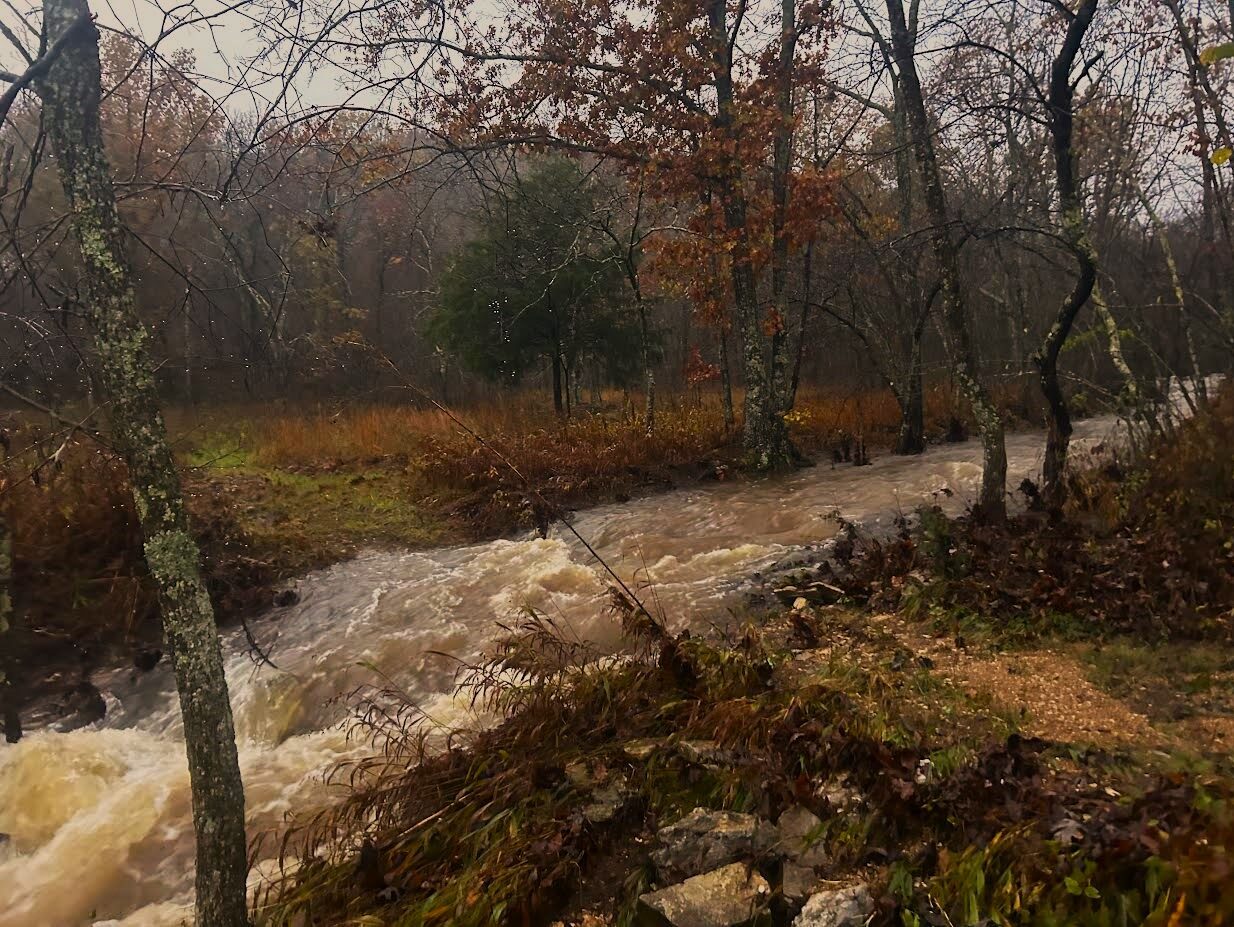
The goldfinches are putting on a show this spring. It’s wonderful to see the little guys out flitting about like they used to do when we first moved here.
When I came to the Ozarks, it had been a very long time since I had lived out in the country. I probably didn’t learn enough about how rural life worked, nor about nature and God’s creation, so I made a lot of hasty moves that cost me the enjoyment of watching lots of birds and woodland critters. There was a swampy area behind my house that really wasn’t good for anything, or so I thought, so I set out to clear the cat tails, berry vines, and willow saplings, hoping I could put the area to better use. We had an abundance of thistle plants all over the property, and I recruited my daughter to help me do war on them. There were big thickets of autumn olives, a “nuisance” shrub that I spent hours attacking with a machete. A person couldn’t walk through those jungles – they were a waste of property. Unless you enjoyed wild bird songs.

As I worked to make the farm more “livable”, I had no idea of the environmental importance of overgrown thickets and willow saplings. But sure enough, after a few years of my war on nature, I began to notice there were less and less indigo buntings, goldfinches, squirrels, and rabbits around. My farm was becoming sterile, and it took me a good while to understand that it was because of my determination to turn the land into a parking lot that things were becoming quiet here, at least as far as bird songs were concerned.
I started reading about some of the environmental issues around the place and began to realize that God knew what He was doing after all, when He set things in motion. Those autumn olive groves made perfect nesting sites for several species of birds and produced a little fruit in the fall for them and the deer to eat. I learned that the favorite food of the goldfinch is thistle seeds, which I had almost entirely cleared out. That old bog that had been a pond basin was still being fed water from a spring behind my house, and those willow trees and cattail and briar patches that had proliferated out there was perfect habitat for birds and countless other critters and beautiful wild flowers.

I noticed when I was clearing the marshy area that there was a delicious scent of mint out there, and lots of plants that grew little orange flowers – I later learned that this was jewel weed, reputed to be a good natural remedy for poison ivy and other skin ailments. Once when I walked out into the woods at another place wearing Bermuda shorts, I went through some nettle plants that stung my bare legs – bad! I’m a fairly tough old codger, but that pain was extremely uncomfortable, and remembering what I had read (and what my daughter had told me) about jewel weed, I started looking for some that I had previously seen nearby. I found it and picked some and crushed it up till it was a slimy mess and applied it to my burning legs. The pain was gone instantly! I have frozen jewelweed paste in my freezer now. And I have a healthy supply growing in my marsh, once a nuisance swampy area, now has become a nature preserve – right behind my house, snakes and all.
We call it “the fen”. If you have one on your property, you should keep it. Pond frogs make a pretty sound.
“A gift from God of inimitable beauty, the sigh of high grass of ochre glade in slow dance to the sweetest of a southern breeze of spring delight. Bouquets of dame’s rocket and wild mallow watch intently and from the dank, dark forest wends earthy, delicious scent of jasmine. How I absorb and thrall to such enormity of sylvan passion as do the pristine bluebirds regaling awing o’er a benevolent scape! What more I ask, dear one, shall heaven be?”
Happy springtime.
MK
